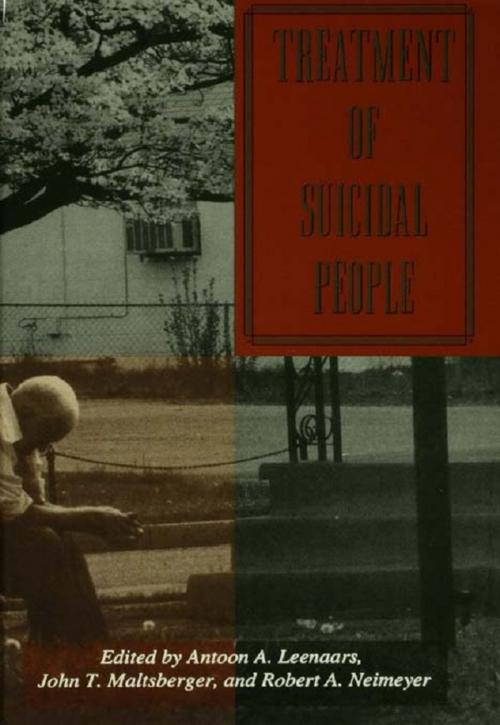Treatment Of Suicidal People
Nonfiction, Health & Well Being, Self Help, Mental Health, Death, Grief, Bereavement| Author: | ISBN: | 9781134937097 | |
| Publisher: | Taylor and Francis | Publication: | February 1, 2013 |
| Imprint: | Taylor & Francis | Language: | English |
| Author: | |
| ISBN: | 9781134937097 |
| Publisher: | Taylor and Francis |
| Publication: | February 1, 2013 |
| Imprint: | Taylor & Francis |
| Language: | English |
Treatment of suicidal people takes three forms: prevention - strategies to avert conditions leading to suicide; intervention - treatment and care during the crisis; and postvention - response after the event has occurred. Unlike other current literature, here the focus is on the state of the art of intervention. This type of examination is essential, because suicidal people themselves are in need of such treatments - crisis intervention, psychotherapy, psychopharmacology and hospitalization.
Written by professionals in the field, the Treatment of Suicidal People allows readers to participate in a learning experience. First is a case presentation of an individual - Arthur Inman - and his long road toward suicide, as chronicled in his personal diary. The seond section puts forth guidelines for the evaluation of suicide risk and crisis intervention. A focus on more sustained efforts in psychotherapy is next, a theme which is continued in the fourth part by addressing psychiatric issues that are essential for treatment of highly disturbed and lethal patients.
The following section examines a number of clinical and legal issues that transcend any one population of suicidal people, and any particular treatment approach or context. And lastly, the volume returns to Arthur Inman, with case consultations providing alternative perspectives and recommendations on his treatment. Suicide and related forms of self-injurious behaviour can be circumvented, if the involved professionals are sufficiently trained in assessment and prevention.
Treatment of suicidal people takes three forms: prevention - strategies to avert conditions leading to suicide; intervention - treatment and care during the crisis; and postvention - response after the event has occurred. Unlike other current literature, here the focus is on the state of the art of intervention. This type of examination is essential, because suicidal people themselves are in need of such treatments - crisis intervention, psychotherapy, psychopharmacology and hospitalization.
Written by professionals in the field, the Treatment of Suicidal People allows readers to participate in a learning experience. First is a case presentation of an individual - Arthur Inman - and his long road toward suicide, as chronicled in his personal diary. The seond section puts forth guidelines for the evaluation of suicide risk and crisis intervention. A focus on more sustained efforts in psychotherapy is next, a theme which is continued in the fourth part by addressing psychiatric issues that are essential for treatment of highly disturbed and lethal patients.
The following section examines a number of clinical and legal issues that transcend any one population of suicidal people, and any particular treatment approach or context. And lastly, the volume returns to Arthur Inman, with case consultations providing alternative perspectives and recommendations on his treatment. Suicide and related forms of self-injurious behaviour can be circumvented, if the involved professionals are sufficiently trained in assessment and prevention.















